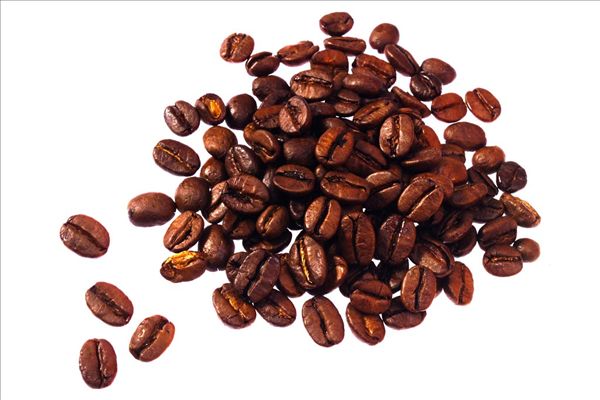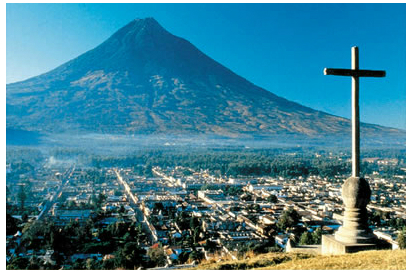World boutique coffee Kenyan coffee excellent coffee with red wine flavor
Kenya coffee is mostly grown at altitudes of 1500- 2100 meters and harvested twice a year. Coffee professionals consider Kenyan coffee to be one of their favorite products because Kenyan coffee contains every feeling we want from a good cup of coffee. Kenyan coffee gained further fame with the Hollywood blockbuster Out of Africa. It entered Kenya in the 19th century, when Ethiopian coffee drinks were imported to Kenya via South Yemen. But it wasn't until the early 20th century that bourbon coffee trees were grown by St. Austin Mission introduced.
To make sure only ripe berries are picked, people have to make about seven rounds through the woods. Kenyan coffee is grown by smallholders who harvest the coffee and send it fresh to a cooperative washing station, which sends the washed and dried coffee to the cooperative in the state of "parchment beans"(i.e. beans covered with an endocarp)("parchment beans" are the final state of the beans before peeling). All coffee is collected together and growers charge average prices based on its actual quality. This method of buying and selling generally works well and is fair to both growers and consumers.
Kenya Coffee-Current Status
Kenya Coffee Bean Kenya takes the coffee industry extremely seriously and it is illegal to cut down or ring coffee trees here. Kenya's coffee buyers are world-class buyers of premium coffee, and no country grows, produces and sells coffee as consistently as Kenya.
All coffee beans are first acquired by the Coffee Board of Kenya (CBK), where they are appraised, graded and then sold at weekly auctions, where they are no longer graded. The Kenya Coffee Board acts only as an agent, collecting coffee samples and distributing them to buyers so that they can determine price and quality. Nairobi auctions are held for private exporters and the Kenya Coffee Board pays growers below-market prices.
The best coffee grade is bean berry coffee (PB), followed by AA++, AA+, AA, AB, etc., in that order. Fine coffee is shiny, delicious and slightly aromatic. The auction is also organized to meet the needs of the distributor. These auctions usually sell small quantities (3-6 tons each), with samples bearing the grower's logo for buyers to appreciate. After the auction, exporters pack them according to different flavors, different qualities and quantities required by the blenders. This provides a great deal of flexibility for the deployer. Quality-conscious germans and nordics are long-term buyers of kenyan coffee.
Some buyers, especially Japanese ones, have complained about Kenya's coffee system. Some traders say the quality of coffee in the country has declined, pointing out that buying directly from farmers may be one way to improve quality. Either way, kenya's detailed rules and procedures are a model for all coffee-producing countries.
Kenyan Coffee-Flavor
It has a wonderful, satisfying aroma, balanced acidity, well-proportioned particles and excellent fruity notes. The taste is unique and there is almost no coffee like it. Kenya coffee is characterized by a distinct fruity aroma. Try looking for this flavor in your coffee and notice how it feels in your mouth. One of the most common fruit fragrances is citrus. Kenyan coffee has multi-layered flavors and juicy acidity, perfect grapefruit and wine flavors, and moderate body.
Good Kenyan coffee is aromatic, rich, fruity and rich in taste. Kenya coffee has a wonderful fruity flavor, with a blackberry and grapefruit flavor, is a favorite of many coffee lovers. This coffee has an excellent medium purity, crisp and refreshing taste. Fresh flavor and best for iced coffee in summer. When tasting this coffee, if it is accompanied by fruit with acidity such as grapefruit, it will definitely give me the best coffee experience. "Less coffee, more fruit tea" is the common feeling many people have about this light roasted Kenyan coffee.
In addition to the obvious and fascinating fruit acidity, Kenya coffee is mostly grown by small coffee farmers in a variety of different environments, with different climates and rainfall each year, bringing a variety of distinct and unique personalities. Take AAPlus grade "KenyaAA+Samburu" as an example, Samburu of 2001 has strong dark plum fragrance, low acidity and strong taste, Samburu newly harvested in winter of 2002 presents completely different flavor, mulberry berry and green plum, accompanied by a little Southeast Asian spice (Spicy) taste, after drinking, there is sweet green tea fragrance, acidity slightly increased than the previous year, taste is still strong. The usual Kenyan flavors are not intense, but have fruity bright flavors, some with spices and some with red wine aromas.
Kenya is just like that, so coffee fans are full of expectations and surprises!
Part of the article comes from the Internet
Important Notice :
前街咖啡 FrontStreet Coffee has moved to new addredd:
FrontStreet Coffee Address: 315,Donghua East Road,GuangZhou
Tel:020 38364473
- Prev

Comprehensive introduction of Grade A coffee beans in the world and the methods of fresh preservation of coffee beans
CONTENT taste introduction 1. Blue Mountain: it is a kind of slightly sour and supple coffee with sweet and delicate flavor. Pure Blue Mountain coffee tastes better, but it tastes very mellow and delicate. It is rated as having aristocratic taste and is the best coffee. two。 Giant Cuban Blue Mountain: known as the Coffee Queen, the fragrance is as comfortable and unique as snow. The taste is smooth and smooth. It is absolutely unforgettable.
- Next

Antigua coffee SHB has rich aroma and excellent sweetness.
The second coffee producing area in Guatemala: Antigua coffee. The Antigua Valley (Antigua Valley) is the oldest and best-known coffee producing area in Guatemala. Volcanoes and extremely shallow groundwater levels form a dry microclimate, characterized by low humidity, adequate sunshine and cool nights. Antigua is a closed valley surrounded by three volcanoes: Ag
Related
- Guji coffee producing area of Guji, Ethiopia: Humbela, Shakiso, Wulaga
- What is the most expensive variety of Qiloso in BOP multi-variety group?
- How to store the coffee beans bought home?
- Why are Yemeni coffee beans so rare now?
- Ethiopian Sidamo all Red Fruit Sun Sun Santa Vini Coffee beans
- SOE is mostly sour? What does it mean? Is it a single bean? what's the difference between it and Italian blending?
- Is Italian coffee beans suitable for making hand-brewed coffee?
- How to choose coffee beans when making cold coffee? What kind of coffee beans are suitable for making cold coffee?
- Just entered the pit to make coffee, what kind of coffee beans should be chosen?
- Can only Japan buy real Blue Mountain Coffee? What are authentic Jamaican Blue Mountain coffee beans?

